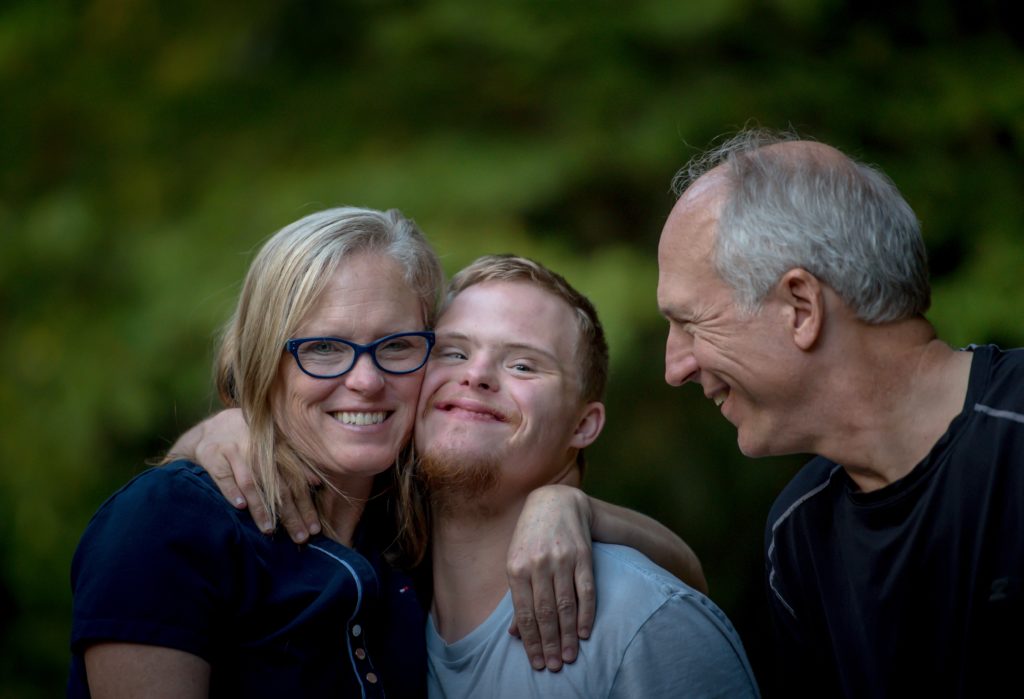Benefits & money
5 mins read
This advice applies across the UK.
You might be starting to think about your son or daughter’s financial independence and how they’ll start to manage their own money. You’ll also need to be aware of changes to any benefits payments you or your child receive to help with their support as they turn 16.
In this article
Building your child’s financial awareness
It’s a good idea to involve your son or daughter in managing their money as far as possible, depending on their understanding and ability. Here are some tips:
- The aim is to build their everyday awareness as one of the steps towards greater independence. Even if they will always need help in some areas, being able to manage money is important in reducing stress and building confidence.
- Start by talking about where your own money comes from and how you decide what to spend. Even if you manage their benefits or expenditure, you can encourage them to check amounts and monitor invoices.
- Practice identifying coins. Money can be a difficult concept to grasp. This is especially so now most of us don’t use actual coins and notes very often. Practising identifying real coins and notes (not toy ones) can help children with additional needs grasp this abstract concept better.
- Use social stories to help. Social stories are a way to describe a situation and possible sequence of events to a child to prepare them for what’s likely to happen. You could make one to explain finances: The National Autistic Society has information on how to write them. Usborne also publish picture books for children to help them learn about money.
- Come up with a way of keeping track of money that makes sense to them, and use it together. Maybe a spreadsheet for transactions if you have a computer, or a notebook kept just for finance. Seeing the numbers can help make it more real over time.
- If it’s appropriate, give your child some responsibility in managing money. Start with small amounts and build up gradually. If you have guardianship or power of attorney, your child can take responsibility for some tasks. You can step in where they need more support.
- Make sure they know what to do if something goes wrong – especially if there seems to be an error, for example an incorrect invoice or statement. It’s important they know where to find help if they need it, to avoid overpaying and prevent undue stress.
- Repetition is key. We’re sure you know this! Repeating exercises like coin identification and keeping track of money will familiarise your child with the concepts and help them learn.
Useful resources
United Response has easy-read Making Money Easier guides for people with learning disabilities, including advice about choosing and using a bank account, a glossary on common banking terms, tips on budgeting and a guide to help people live independently.
Dosh supports people with learning disability to manage money and has information on managing money, opening a bank account and so on.
The Money Advice Service has a beginners guide to managing money, including information on budgeting tools, saving and prepaid cards.
Independent Living Foundation (ILF) Scotland provide a Transition grant to help disabled young people aged 16-25 become more independent as they move into adulthood.
Benefit changes at 16
We have information elsewhere on our website all about what happens to benefits when a child turns 16.
Moving from Disability Living Allowance to Personal Independence Payment in England, Northern Ireland and Wales
Personal Independence Payment (PIP) is a benefit to help with the extra costs of disability for adults aged 16-64. It replaces Disability Living Allowance (DLA) for children when they turn 16.
Children turning 16 who currently claim DLA will be asked to claim PIP after their 16 birthday.
Moving from Child Disability Payment to Adult Disability Payment in Scotland
Adult Disability Payment is a new disability benefit in Scotland for disabled adults aged 16 and over. The Scottish government introduced Adult Disability Payment to replace Personal Independence Payment (PIP).
If your child gets Child Disability Payment, they will not be automatically transferred onto Adult Disability Payment. Instead, you or your child will have to make a claim for Adult Disability Payment at some point between their 16th and 18th birthday.
Other benefits at 16 (England only)
When your child turns 16, you may have to choose whether you keep claiming benefits for them as a dependent, or your child claims benefits in their own right.
In some situations, the benefits you receive for your child as a dependent will stop.
Find out more about benefits at 16.
Acting as a benefits appointee
If your son or daughter lacks the mental capacity to manage their own affairs, you may be able to receive and manage benefits for them, acting as their appointee.
Education costs
Tuition is free for 16-18 year olds. Young people over 19 without education, health and care (EHC) plans in England can be charged tuition fees, depending on the type and level of course they’re studying.
In Scotland and Wales, a weekly payment called Education Maintenance Allowance (EMA) is available to 16-18 year olds (and some 19 year olds). The amount your child could get will depend on parental income.
In England, there are two types of 16-19 bursary that your child might be eligible for.
Find out more about help with education costs.
Paying for adult social care services
One a young person is 18, any charging by social services would be under the rules governing charging for adult care services under the Care Act.
Read more about paying for adult services.
Related information

Education beyond 16
Your child can legally leave school at the end of the school year in which they turn 16 (normally the end of…
Read more
Making a plan
The change from being a teenager to becoming an adult is often referred to in the world of disability as "transition". On…
Read more
Wills & trusts
Writing a will and including a trust can help give some reassurance that the person you care for is provided for when…
Read more